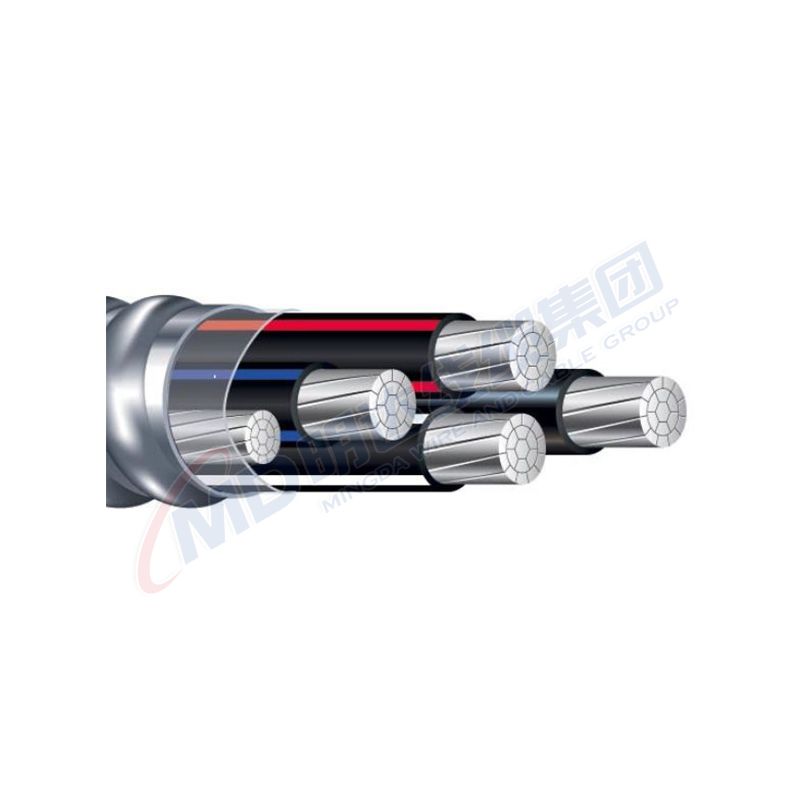10 月 . 18, 2024 16:44 Back to list
Different Types of Electric Cables and Their Applications Explained
Types of Electric Cable Wire
Electric cables are essential components in electrical systems, providing the necessary pathways for the flow of electricity. Understanding the different types of electric cable wires is crucial for selecting the right one for your specific application. This article will explore various types of electric cable wires, their characteristics, and their common uses.
1. Multistranded vs. Solid Wire Electric cables can primarily be categorized based on their construction solid wire and multistranded wire.
- Solid Wire is composed of a single, solid conductor. This type is more rigid and can be easier to connect to terminals, making it suitable for permanent installations where flexibility is not a concern. Solid wire is often used in wall-mounted electrical installations because it tends to perform better in stationary applications.
- Multistranded Wire, on the other hand, consists of many small strands of wire twisted together. This design offers enhanced flexibility, making it ideal for applications where movement is necessary. Multistranded cables are commonly used in portable equipment, vehicles, and devices that require frequent handling.
2. Types of Insulation The insulation surrounding the conductor is crucial in determining the cable's suitability for different environments. Common types of insulation include
- PVC (Polyvinyl Chloride) Widely used due to its cost-effectiveness and versatility, PVC insulation is ideal for low-voltage applications. However, it has a maximum temperature limit, making it less suitable for high-temperature environments.
- XLPE (Cross-Linked Polyethylene) This insulation type can withstand higher temperatures and is resistant to chemicals and abrasion, making it suitable for more demanding applications, including industrial environments.
- Rubber Insulation Offering excellent flexibility and durability, rubber insulation is often used in cables that will experience frequent movement or mechanical stress
.3. Types of Electric Cable There are several types of electric cable tailored for specific uses
types of electric cable wire

- NYY (Insulated Power Cable) Commonly used for power distribution, NYY cables are suitable for underground installations as they are waterproof and robust. They can carry high electrical loads and are often used in residential and commercial buildings.
- SY and CY Cables These are flexible cables that contain multiple strands and often feature an additional shield for protection against electromagnetic interference (EMI). They are commonly used in machinery and automation due to their flexibility and durability.
- RHH/RHW-2 (Heat-Resistant Wire) These wires are rated for high heat conditions, typically used in industrial environments. They possess excellent moisture and chemical resistance and are often found in commercial installations and outdoor applications.
4. Low Voltage vs. High Voltage Cables Electric cables can also be classified based on the voltage they are designed to handle
- Low Voltage Cables These are used for applications under 1,000 volts. They are commonly found in residential wiring, small appliances, and lighting circuits.
- High Voltage Cables Designed for applications over 1,000 volts, these cables are crucial for power transmission and distribution networks. They often feature additional insulation and robust construction to ensure safety and performance under high-pressure conditions.
5. Specialty Cables Some cables are designed for very specific applications, including
- Armored Cables These cables have a protective metal sheath that offers enhanced mechanical protection, making them suitable for underground installation where physical damage is a concern.
- Lan Cables (Cat5e, Cat6) Used for data transmission, these cables are designed to support high-speed internet connections and are common in networking applications.
Conclusion Choosing the right type of electric cable wire is essential for ensuring safety, efficiency, and reliability in electrical installations. Understanding the different types of wires, their insulation properties, and appropriate applications can help in making informed decisions for various electrical projects. Whether you are a DIY enthusiast or a professional electrician, being aware of these cable varieties will significantly enhance the quality and safety of your work. Proper installation and selection contribute not only to the performance of electrical systems but also to the longevity and durability of the infrastructure involved.
Share
-
Understanding the Differences Between Wafer Type Butterfly Valve and Lugged Butterfly ValveNewsOct.25,2024
-
The Efficiency of Wafer Type Butterfly Valve and Lugged Butterfly ValveNewsOct.25,2024
-
The Ultimate Guide to Industrial Swing Check Valve: Performance, Installation, and MaintenanceNewsOct.25,2024
-
Superior Performance with Industrial Swing Check Valve: The Essential Valve for Any SystemNewsOct.25,2024
-
Industrial Swing Check Valve: The Ideal Solution for Flow ControlNewsOct.25,2024
-
You Need to Know About Industrial Swing Check Valve: Functionality, Scope, and PerformanceNewsOct.25,2024